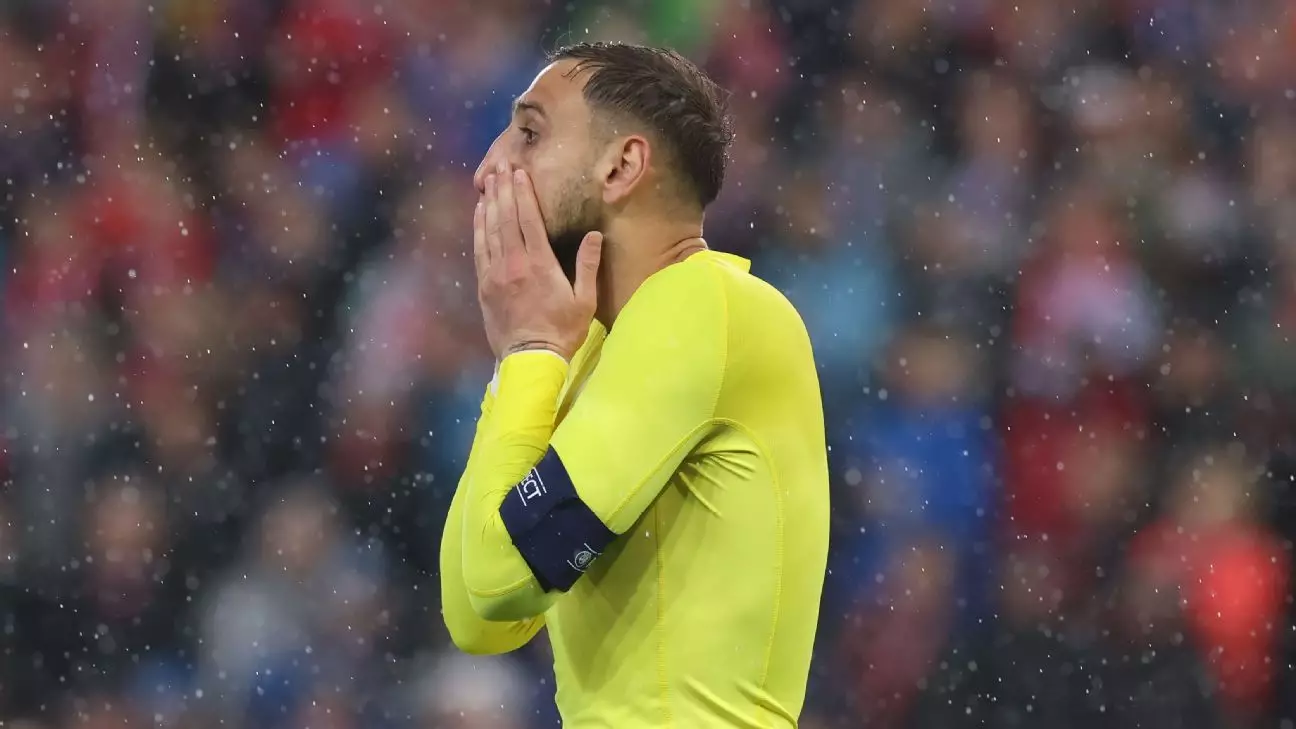After a disheartening 3-0 defeat to Norway, Italy’s goalkeeper Gianluigi Donnarumma has delivered a stinging critique of his team’s performance, labeling it “not acceptable.” This statement resonates deeply given Italy’s recent football history, where the nation once basked in the glory of four World Cup titles but has now turned into a shadow of its former self. The overwhelming defeat in Oslo is not merely a blemish; it represents a significant concern for a country that hasn’t seen World Cup success since 2006 and hasn’t qualified since 2014.
Donnarumma, who only a week prior guided Paris Saint-Germain to Champions League victory, finds himself struggling to comprehend the dismal display by his national team. “I have no words,” he said, underlining his frustration not just with the loss, but the implications of such a performance as they set out to qualify for next year’s World Cup in North America. This critique is not just a reflection of one match; it encapsulates a deeper malaise affecting Italian football, a call for unity, accountability, and, above all, improvement.
The Dangers of Complacency and Inconsistency
Italy’s failure to qualify for the World Cup is a poignant reminder of how rapidly fortunes can change in football. The once-mighty Azzurri are facing the constant threat of stagnation. Situated in a volatile qualifying group where only one team automatically qualifies, every match now carries monumental weight. Head coach Luciano Spalletti must juggle the pressure of reviving a proud footballing tradition while managing a squad that displayed a worrisome lack of intensity and unity against Norway.
In the match, Italy’s defense faltered under pressure, highlighting a fundamental issue that has been brewing for years. The players appeared unsure and lacked coherence, often being caught out of position and exhibiting a lack of urgency in their play. For Spalletti, these mistakes illuminate a broader crisis of confidence that cannot be overlooked. The Italian manager’s acknowledgment of the need for greater enthusiasm within the squad signifies a crucial recognition that talent alone cannot transcend psychological barriers.
A Rift in Leadership and Strategy
Spalletti’s candid comments post-match about the need for a strategic overhaul signal potential turmoil within the Italian camp. He emphasized the importance of team unity and individual accountability. “We need to add something more,” he remarked, illuminating the distinction between a team filled with quality players and one that functions as a cohesive unit. The cracks in strategy have become evident, and Spalletti’s reflections suggest that perhaps the coaching methods and tactical approaches must evolve.
As Spalletti considers discussions with the Italian Football Federation (FIGC) regarding his future, questions loom about his ability to inspire and revitalize a group that seems to crumble under pressure. Is he the right leader to navigate these troubled waters? Or does the situation call for a re-evaluation of leadership strategies to bring back the Italian flair that once made them formidable opponents?
Looking Beyond the Horizon: The Path Ahead
The road to redemption will undoubtedly require more than just tactical adjustments. It demands a cultural shift within Italian football, instilling a sense of pride and fighting spirit in the players. This humbling loss could serve as an impetus for change—an opportunity to reassess not only player selections and strategies but also the very ethos that has defined Italian football in the past.
The shift must come from not just the coaching staff but also the players, who must recognize that they are the inheritors of a legacy. They need to acknowledge their responsibilities to fans and the nation. Each player must ask themselves what it means to wear the blue jersey and what they are willing to sacrifice for it. It’s a call to arms for the group, one that demands resilience and a unified front.
If Italy wishes to reclaim its place among the football elite, a collective effort must ensue. Donnarumma’s comments and Spalletti’s leadership approach can be seen as the litmus test for Italian football’s ambition. The nation can no longer afford to simply rely on past glories; it must forge a new identity in the face of adversity—one that resonates with the spirit of the game and the hopes of its passionate supporters.


Leave a Reply